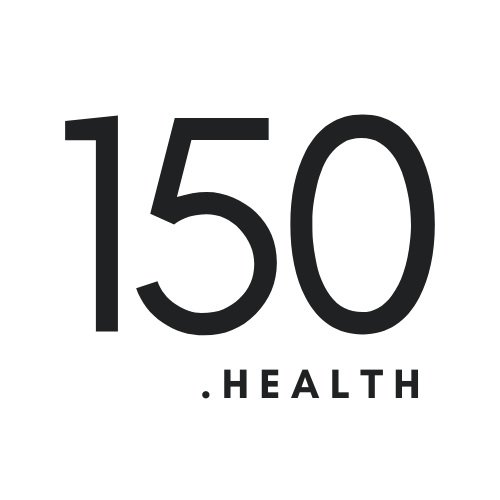To D or Not to D - Curia on Vitamin D
‘’Taking vitamin D supplements every day does not help a person avoid bone fractures, a major study suggests — contradicting years of medical advice that said otherwise’’, claimed a recent New York Times article citing a study published in The New England Journal of Medicine. Gina Kolata, the author of this article has some advice for millions of Americans who take vitamin D supplements and the labs that do more than 10 million vitamin D tests each year: stop.
This is a pretty strong health guidance and message coming from a journalist, the aftermath of which lies with clinicians who - as experts - must explain why they have their patients on vitamin D supplements. Our own patients sent curious emails too. It didn’t surprise us though, given the New York Times created a similar stir in 2009, when contrary to their current stance, they reported that ‘Vitamin D Shows Heart Benefits’ and that it is ‘’a critical player in numerous aspects of metabolism’’. Evidently journalistic health advice is only as good as the headlines they can create.
Unlike ever changing headlines and interest on the subject of vitamin D, our belief on this is consistent and simple: vitamin D is an inexpensive, effective intervention with multiple benefits and risk adjusted, we will continue to recommend it to our patients and friends and family members who are deficient. And we rarely ever come across a patient who isn’t.
Here’s why we think the study and article were both flawed and why we continue to vouch for vitamin D supplementation:
The study sets out to evaluate the effects of vitamin-D on fracture risk - not a terribly interesting question to begin with considering vitamin-D is recommended for better bone health, calcium absorption, support of immune function, mental health, and so much more.
The New York Times reporting of the study takes great liberties and draws conclusions that go beyond the scope of the actual study. If the study’s primary aim is to disprove the effect of vitamin D on reducing the risk of bone fractures in elderly people, concluding the article with its apparent inefficacy on ‘’all major diseases’’ is beyond extrapolation - it’s irresponsible journalism.
The study gives a relatively low dose of vitamin D to a group of 50+ year olds who are neither Vitamin D deficient nor at an elevated risk for fractures - odd considering this is a study that specifically set out to evaluate the effects of vitamin D on fracture risk!
The average BMI of the trial participants was 28 - in other words they were overweight, on average, which again lowers osteoporosis/fracture risk, thus lowering the likelihood of seeing a measurable effect in the study.
The researchers are studying the effect of vitamin D on fracture risk without considering the effects of vitamin D combined with calcium supplements which is generally how clinicians prescribe vitamin D.
As we have explained in a previous article, it is utterly ridiculous to make an argument that singles out the effect of one vitamin or drug or food on a health condition. Reducing the risk of bone fractures involves much more than popping a vitamin D pill. These arguments are reductionist and dangerous.
The study never measures vitamin D levels after starting supplementation, so we have no idea if their vitamin D levels even increased meaningfully from the supplementation! Given that this study ran for 5+ years, one would expect to note this information.
Why we recommend vitamin D supplements to our patients?
Vitamin D receptors (VDR) are present in pretty much every human cell. They have both calcemic and non-calcemic effects, meaning other than increasing the absorption of calcium in the body to maintain bone health, vitamin D also has a role in boosting immunity, acting as an anti-inflammatory agent and reducing the risk of certain cancers. You can read all about vitamin D on examine.com’s comprehensive analysis of the supplement here. Its anti-inflammatory, antioxidant and neuroprotective properties support immune health, muscle function and brain cell activity. Vitamin D supplements are an inexpensive strategy for colorectal cancer risk reduction for adults younger than the age of 50. Researchers have found possible associations between low vitamin D levels and depression, specifically in people with postpartum depression, people with pain, chronic spinal cord injuries, stroke and multiple sclerosis. Some smaller studies have also shown that various groups of people experienced improvements in symptoms of depression after taking vitamin D supplements.
Secondly, it is extremely rare to get vitamin D toxicity, especially at levels recommended at most clinics including ours. It’s an inexpensive, easy-to-implement intervention and we continue to see benefits that far outweigh risks.
The New York Times article also takes the liberty to claim that the cut-off for vitamin D range used by most US labs was ‘’so high that it would naturally render almost everyone deficient.’’ Of course, they skip over the nuance that ‘normal’ ranges of vitamin D vary with age, amongst other factors. There is also an entire conversation that can be had about achieving ‘normal’ versus ‘optimal’ levels in a given reference range, but that’s a whole different article that we plan to write for you. Overall, we will continue to consider vitamin D an important supplement for bone, cognitive and metabolic health. As for consuming health advice from journalists, our advice is as simple as theirs - just stop!

